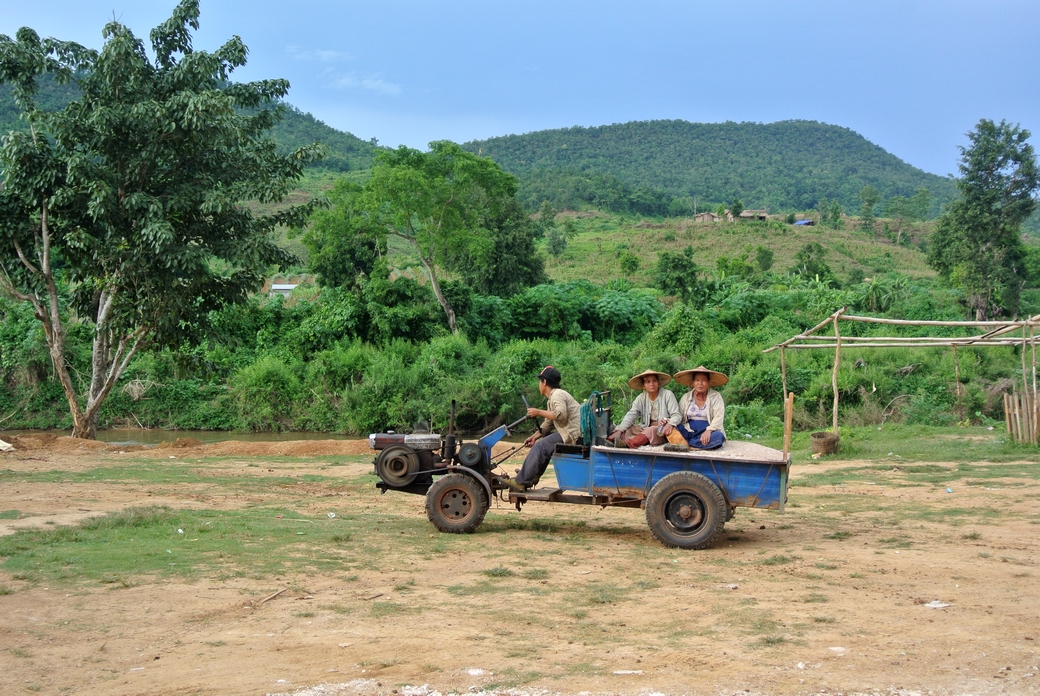Cesvi is currently present in the Dry Zone of Myanmar implementing its livelihoods and rural development program since 2008. Among the interventions, the project “Addressing Climate Change Risks on Water Resources and Food Security in the Dry Zone of Myanmar” is implemented in collaboration with UNDP, the United Nations Department of Agriculture and Yezin Agricultural University, bringing together different expertise to benefit the farmers of 280 villages in five townships.
In the framework of this project, Cesvi carries out different activities to reduce the vulnerability of farmers to the increasing drought and rainfall variability, by adapting their cropping patterns and enhancing their capacity to plan for and respond to future impacts of climate change on food security.
Also in Shwebo Township, located in the Sagaing Region, the effects of climate change, high temperatures and heavy rains are causing serious challenges to the local farmers, who see their income decreasing, due to the diminishing productivity of the local rice variety. In response, Cesvi and UNDP are supporting rice production in Shwebo Township through the testing and future validation of newly selected varietal lines.
“Traditionally, local farmers from Shwebo grew very old and low yielding varieties, which are susceptible to pest, disease and climate change condition” explains Myo Min Aung, Cesvi Project Manager. “Therefore, through farmers’ participation, we want to develop varieties which are suitable for marginal soils under high temperature and drought conditions. Participatory Varietal Selection was conducted in Shwebo, which is the major rice growing area in central Dry Zone of Myanmar”.
Cesvi and its partners are intervening with the introduction of improved rice varieties, suited to the changing climate, grown by Yezin Agriculture University, opening the pathway to the Participatory Rice Varietal Selection, where the farmers are real protagonists in a three steps election.
At the beginning, the mother trial is initiated starting from the rice varieties bred by the Yezin University, and the selected varieties are planted in a field presenting controlled cropping conditions under the care of volunteer farmers.
A second voting session is then organized, where the performance of the rice in the field is evaluated at mid-point of the cropping cycle. Physical characteristics of the plants are evaluated and varieties are ranked in comparison to farmers’ usage: plant height, number and density of tiller; number, size and aspects of panicles.
Finally, at the harvest stage, a third round of voting is based on the final product quality, where the organoleptic properties of the rice varieties are assessed in complement to yielding information.
The process ends up with the selection of four improved rice varieties, which will be used in 2018 by the farmers for the baby trial, who will test the final quality of the introduced rice variety in the uncontrolled conditions of their own field. The introduced variety should be more adaptable to the high temperature and drought conditions, ensuring a better yield to the farmers, more stable source of food and income.
“Positive cooperation with Local Authorities is playing a crucial role in the implementation of the project” says Ralf Nico Thill, Cesvi Head of Mission. “During the Participatory Rice Varietal Selection activity, Yezin Agricultural University ensured the technical expertise, while agents of the Department of Agricultural Research and Department of Agriculture, trained by Cesvi, will ensure the monitoring and sustainability of the activity”.
